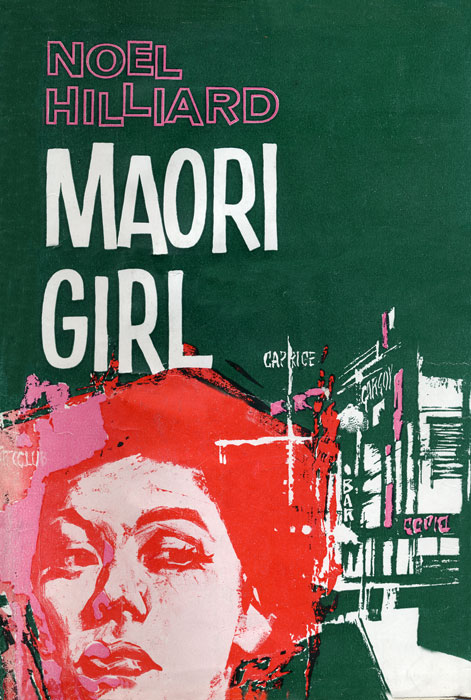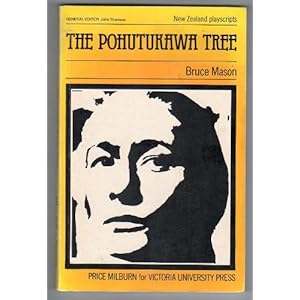Middlesex had been lying on my bookshelf for a while before I plucked up the courage to pick it up and read it. I'd bought it at a second-hand bookshop, attracted of course by the author's Greek surname, and the short blurb on the back of the book about the story: "Middlesex tells the breathtaking story of Calliope Stephanides, and three generations of the Greek-American Stephanides family, who travel from a tiny village overlooking Mount Olympus in Asia Minor to Prohibition-era Detroit..."
I googled the book for more information, but the reviews I read did not emphasise any part of the immigrant storyline that it is based on. They mainly concentrated on the sexual orientation of the main character:
Amazon reviewers make this point quite clear: "Too long," one recent reviewer wrote, "the last part was good, but it took forever to get there. I would not recommend this book." Similar to another one: "While reading Middlesex I enjoyed it immensely but until last 130 pages, if I were I put it down I wouldn't pick it up again for weeks at a time. Finally yesterday I got 3/4 of a way through and couldn't put it down - loved the last 130 pages. Loved it." The last 130 pages of this very long book (over 500 pages) contain the most explicit sexual descriptions.
Although the story has a reasonably happy ending, Middlesex is in essence a sad story. Some of the names of the characters, such as Desdemona (the main character's Greek grandmother who was born in a village with a Greek name which is now part of modern-day Turkey), attest to their ill-fated destiny. The doom and gloom of the story is firmly set on the very first page, with all the eerie moments of the main character's life described quite succinctly.
Eugenides' story-telling techniques make compelling reading, so you will not be bored as you plod through the book - unless you find the historical aspects of Greek identity boring, and there is a lot of that! Greek-American Eugenides claims that he had to learn about the history of his Greekness* because only his grandfather was Greek, and his Greekness essentially died with the passing of his grandparents. But he has done such a good job in this way, that by reading Middlesex, other Greeks, especially estranged ones, will learn about their Greek identity in a way that will help them to understand themselves better.
Middlesex is a good example of literature related to melting-pot/migration issues. Of course, the gender issue is far more central and crucial to the story than are the Greek identity and disapora heritage parts, but Eugenides focuses equally on the two themes and he marries them well in the story he tells. The author himself insists that he didn't want to write a story about Greek-Americans; he wanted to write about hermaphrodites. But he needed some kind of base, and his story does end up sounding very much like a Greek-American saga with a twist.
Without flipping through the book again after I'd read it (although I would like to read it once more at least in my life), the parts I like to keep in mind are three:
The following links:
http://www.theguardian.com/books/2011/dec/02/jeffrey-eugenides-middlesex-book-club
http://www.theguardian.com/books/2011/nov/25/book-club-middlesex-jeffrey-eugenides
http://www.theguardian.com/books/2011/nov/18/book-club-middlesex-jeffrey-eugenides
http://www.theguardian.com/books/2011/nov/11/jeffrey-eugenides-middlesex-book-club
are written by John Mullan, a Professor of English at University College London, who specialises in 18th century fiction, and writes a weekly column on contemporary fiction for The Guardian. There is very little mention of cultural identity issues in this series of reviews. Mullan also interviews Greek-Australian writer Christos Tsiolkas who wrote the shockingly provocative The Slap, an excellent example of melting pot immigrant literature:
http://www.theguardian.com/books/audio/2014/jan/24/christos-tsiolkas-the-slap-podcast
Again, he does not mention the immigrant aspect of the story, even though a good number of the people in the audience (the link leads you to a podcast) were of Greek heritage and the Greek diaspora communities are discussed in their questions. (To hurry the interview along at the end, Mullan wraps it up by telling the audience that he wants enough time to have a drink with Tsiolkas at a pub.)
I don't know if I am correct to say this, and maybe I am being slightly (or perhaps overly) provocative to mention this, but it seems to me that the academic world does not understand the Greek mind at all, it does not understand the Greek diaspora (a Greek word often attributed to the Jews), and it does not pay enough attention to the concept of Greek identity...
... which is the reason why the global attention to the Greek financial crisis is so misdirected, and why the world cannot help the Greeks of Greece in the right way. The solution to the Greek crisis - which was an identity crisis in the disguise of an economic crisis - will come from the Greeks themselves, not the IMF or the ECB, perhaps with the help of the EU, which is an inseparable part of Greece, as Greece is an inseperable part of Europe.
* In this link, you will also find another link to some 'Greek' recipes that the Oprah Winfrey bookclub suggests, like Lemon and Lavender Mousse with Blueberry Soup. Greek food was not so 'in' in 2007 when these links went up. Only 7 years have passed, but the globally connected world that we live in is better acquainted with Greek food to detect mislabeling.
©All Rights Reserved/Organically cooked. No part of this blog may be reproduced and/or copied by any means without prior consent from Maria Verivaki.
I googled the book for more information, but the reviews I read did not emphasise any part of the immigrant storyline that it is based on. They mainly concentrated on the sexual orientation of the main character:
"I was born twice: first, as a baby girl, on a remarkably smog-less Detroit day of January 1960; and then again, as a teenage boy, in an emergency room near Petoskey, Michigan, in August of 1974. . . My birth certificate lists my name as Calliope Helen Stephanides. My most recent driver's license...records my first name simply as Cal."
So begins the breath-taking story of Calliope Stephanides and three generations of the Greek-American Stephanides family who travel from a tiny village overlooking Mount Olympus in Asia Minor to Prohibition-era Detroit, witnessing its glory days as the Motor City, and the race riots of 1967, before they move out to the tree-lined streets of suburban Grosse Pointe, Michigan. To understand why Calliope is not like other girls, she has to uncover a guilty family secret and the astonishing genetic history that turns Callie into Cal, one of the most audacious and wondrous narrators in contemporary fiction. Lyrical and thrilling, Middlesex is an exhilarating reinvention of the American epic.Take note that the above description (the standard one found on most websites that feature the book) was taken from a gayNZ website. (It's also inlcuded in a Greek gay website.) But the story is not about a homosexual. Gender issues (aka sex) are a money-spinner, in a way that Greek social history is not. Sex has always been a very marketable commodity, and people's lust for the sexually unusual is insatiable. So it is such a shame that this brilliant story, based on the lives of an extended Greek diaspora family in America over the course of more than five decades, does not get the attention it deserves in terms of the value it possesses in the discussion about Greek heritage and Greek identity. Greekness is not as sensational as being intersexual.
Although the story has a reasonably happy ending, Middlesex is in essence a sad story. Some of the names of the characters, such as Desdemona (the main character's Greek grandmother who was born in a village with a Greek name which is now part of modern-day Turkey), attest to their ill-fated destiny. The doom and gloom of the story is firmly set on the very first page, with all the eerie moments of the main character's life described quite succinctly.
Eugenides' story-telling techniques make compelling reading, so you will not be bored as you plod through the book - unless you find the historical aspects of Greek identity boring, and there is a lot of that! Greek-American Eugenides claims that he had to learn about the history of his Greekness* because only his grandfather was Greek, and his Greekness essentially died with the passing of his grandparents. But he has done such a good job in this way, that by reading Middlesex, other Greeks, especially estranged ones, will learn about their Greek identity in a way that will help them to understand themselves better.
Middlesex is a good example of literature related to melting-pot/migration issues. Of course, the gender issue is far more central and crucial to the story than are the Greek identity and disapora heritage parts, but Eugenides focuses equally on the two themes and he marries them well in the story he tells. The author himself insists that he didn't want to write a story about Greek-Americans; he wanted to write about hermaphrodites. But he needed some kind of base, and his story does end up sounding very much like a Greek-American saga with a twist.
Without flipping through the book again after I'd read it (although I would like to read it once more at least in my life), the parts I like to keep in mind are three:
- when Desdemona calls out 'sonofabichie' to get the streetcar to stop when it passes by her destination point, and she smiles as she gets out of the car while the other passengers look at her somewhat perplexed. Immigrant stories are full of tragi-comic cross-cultural blunders. I recall a Greek man in New Zealand telling us what he did when he went to a butcher for the first time in his life, where he wanted to buy chicken. Either he didn't know the English word for it, or he couldn't pronounce it well (maybe he was calling it 'kitchen'), so he flapped his hands by his side, and the butcher eventually understood.
- when Desdemona describes how she felt when she got a job, where she worked with black people: "then they make me go to work for those mavros, oh my God!" Racism is a touchy subject, and I think that Eugenides was right not to tell us much too much about how the Greek family approached the issue of black America, even though they were living in the thick of it, in 1960's Detroit and the race riots. But we get a good idea of what was going on in this sphere at two points in the story: when little Callie was told by her father Milton (Desdemona's son, baptised Miltiades, which is Americanised to Milton) not to approach strangers (she made friends with a black man on the street), and when Milton asks a rhetorical question to the same black man who was dodging sniper fire while Milton had barricaded himself in his restaurant trying to protect it during the riots: "What's the matter with you people?" (Read the book to find out the haunting answer that the black man gave.)
- when Milton decides that "We have to do whatever's in our national interest," after his Greek-heritage friend (as most people the family associates with are) declared that Americans betrayed the Greeks, to which Milton replied "To hell with the Greeks then." This signals a defining moment of a sudden change of identity, similar to the transformation of the teenage girl Callie to the teenage boy Cal. It also shows an acceptance of who one really is: Greek or American, which again pairs well with the gender-change theme, girl or boy. You can't always choose to be both.
"Well, Greek-Americans are always thinking back to their so-called glorious past, and it’s… it’s a good place for comedy – the distance between Sappho and Souvlaki, basically – and I try to use that in this book."Bonus information.
The following links:
http://www.theguardian.com/books/2011/dec/02/jeffrey-eugenides-middlesex-book-club
http://www.theguardian.com/books/2011/nov/25/book-club-middlesex-jeffrey-eugenides
http://www.theguardian.com/books/2011/nov/18/book-club-middlesex-jeffrey-eugenides
http://www.theguardian.com/books/2011/nov/11/jeffrey-eugenides-middlesex-book-club
are written by John Mullan, a Professor of English at University College London, who specialises in 18th century fiction, and writes a weekly column on contemporary fiction for The Guardian. There is very little mention of cultural identity issues in this series of reviews. Mullan also interviews Greek-Australian writer Christos Tsiolkas who wrote the shockingly provocative The Slap, an excellent example of melting pot immigrant literature:
http://www.theguardian.com/books/audio/2014/jan/24/christos-tsiolkas-the-slap-podcast
Again, he does not mention the immigrant aspect of the story, even though a good number of the people in the audience (the link leads you to a podcast) were of Greek heritage and the Greek diaspora communities are discussed in their questions. (To hurry the interview along at the end, Mullan wraps it up by telling the audience that he wants enough time to have a drink with Tsiolkas at a pub.)
I don't know if I am correct to say this, and maybe I am being slightly (or perhaps overly) provocative to mention this, but it seems to me that the academic world does not understand the Greek mind at all, it does not understand the Greek diaspora (a Greek word often attributed to the Jews), and it does not pay enough attention to the concept of Greek identity...
... which is the reason why the global attention to the Greek financial crisis is so misdirected, and why the world cannot help the Greeks of Greece in the right way. The solution to the Greek crisis - which was an identity crisis in the disguise of an economic crisis - will come from the Greeks themselves, not the IMF or the ECB, perhaps with the help of the EU, which is an inseparable part of Greece, as Greece is an inseperable part of Europe.
* In this link, you will also find another link to some 'Greek' recipes that the Oprah Winfrey bookclub suggests, like Lemon and Lavender Mousse with Blueberry Soup. Greek food was not so 'in' in 2007 when these links went up. Only 7 years have passed, but the globally connected world that we live in is better acquainted with Greek food to detect mislabeling.
©All Rights Reserved/Organically cooked. No part of this blog may be reproduced and/or copied by any means without prior consent from Maria Verivaki.


































